Hey there! If you're planning to light up the night sky with a spectacular fireworks display, you're going to need a permit to ensure everything goes off without a hitch. It's not just about the thrill of the fireworks; following the proper guidelines keeps everyone safe and in compliance with local regulations. In this article, we'll guide you through the essential steps for obtaining your fireworks sale permit. So, let's dive in and spark your excitement for the upcoming celebration!
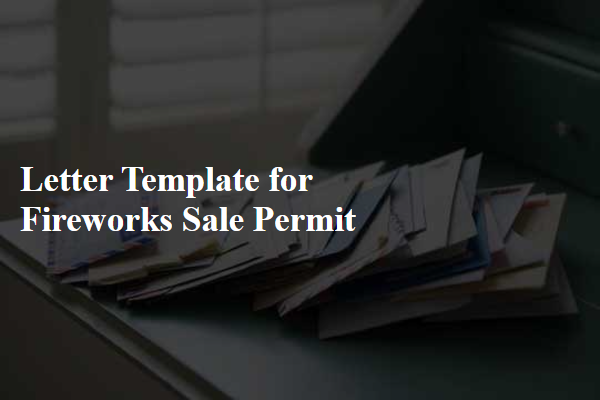
Applicant Information
Applicant information is crucial for processing fireworks sale permits, including name, address, phone number, date of birth, and identification number. For example, the name could be John Smith, who resides at 123 Main Street, Springfield, with a phone number of (555) 012-3456 and a date of birth of January 15, 1985. The identification number, often a driver's license or state-issued ID, must be provided for verification purposes. Accurate and comprehensive applicant information ensures adherence to regulations, safety protocols, and facilitates efficient communication regarding the permit status.
Business Details
Business details are essential for obtaining a fireworks sale permit. The business name, such as "Sky High Pyrotechnics," must be clearly stated. Include the business address, for instance, 1234 Celebration Ave, Fireworks City, which provides the physical location for operations. Specify the owner's name, like John Doe, along with contact information, including a phone number (555-0123) and email address (contact@skyhighpyro.com). Documentation for business registration, such as a business license and tax identification number, should accompany the permit application. Additionally, provide details regarding the sales location, which may involve a temporary stand at the Annual Fireworks Festival in Central Park, scheduled for July 4, ensuring compliance with local regulations.
Fireworks Inventory and Safety Measures
During a fireworks sale event, maintaining an organized fireworks inventory is crucial for operational efficiency and safety compliance. Each type of firework, including aerial shells, fountains, and sparklers, must be cataloged with accurate details such as quantity, size, and safety classifications. Adhering to safety measures mandated by local regulations is essential; explosives should be stored in temperature-controlled locations away from populated areas, minimizing fire hazards. Personnel involved in the sale must be trained in handling procedures and emergency protocols to ensure a safe environment for customers. Furthermore, signage explaining usage guidelines and safety precautions should be prominently displayed to inform and protect the public during the event.
Location and Duration of Sale
Fireworks stands operate primarily in festive locations during specific periods. For example, in the United States, many states approve sales predominantly around the Fourth of July and New Year's Eve celebrations. These sales typically last from June 28 to July 5 and December 26 to January 1, accommodating consumer demand for holiday celebrations. Proposed locations for sales often include high-traffic areas such as parking lots of shopping centers or designated public spaces, which maximize visibility and accessibility. Local regulations may mandate specific distances from residential areas, schools, and hospitals to ensure safety and compliance. The duration of sales must align with local ordinances to protect community well-being while supporting festive traditions.
Compliance with Local Regulations and Insurance
Acquiring a permit for the sale of fireworks involves strict adherence to local regulations and safety requirements. Vendors must familiarize themselves with ordinances specific to their jurisdiction, such as those set forth by the Fire Marshal's Office in locations like Los Angeles, California, which impose regulations on the types of fireworks that can be sold (including consumer-grade items). Additionally, obtaining liability insurance is crucial; policies typically require coverage upwards of $1 million to protect against potential accidents or injuries during sales events, especially during high-traffic holidays like Independence Day. Compliance with these regulations not only promotes safety but also ensures a lawful operation that contributes to community welfare.

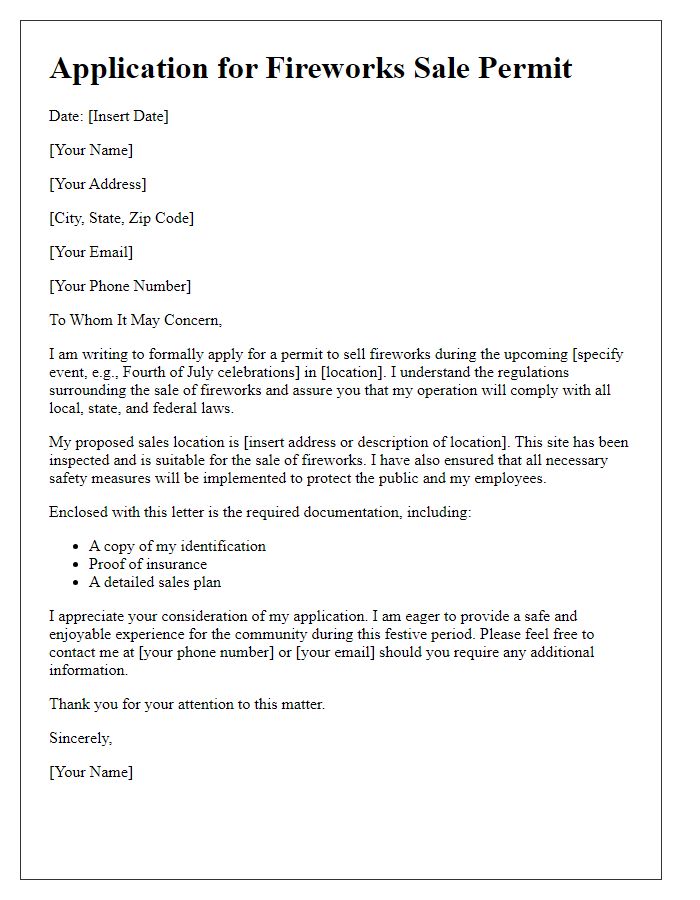
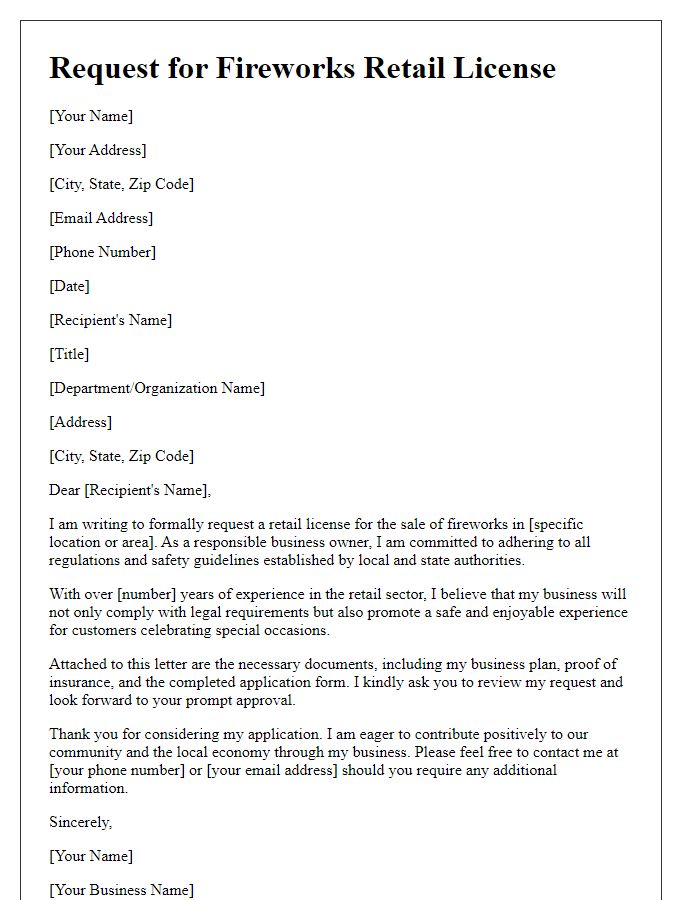
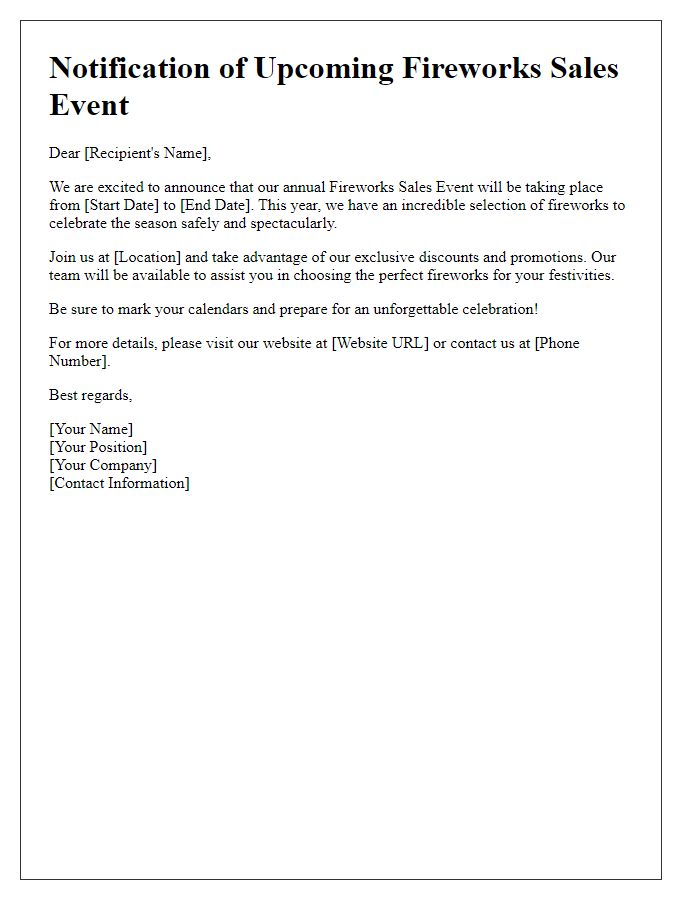
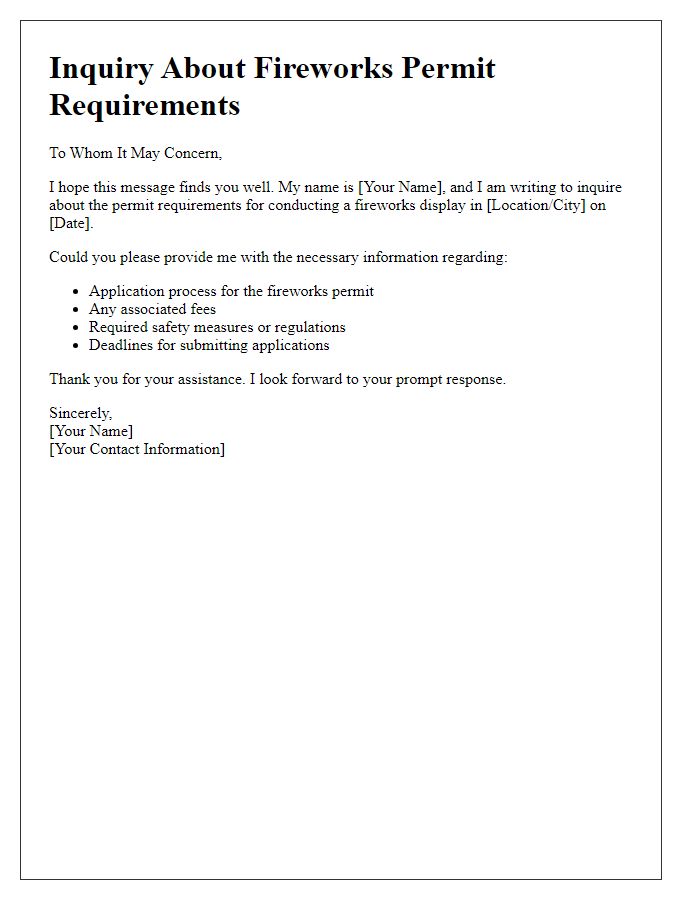
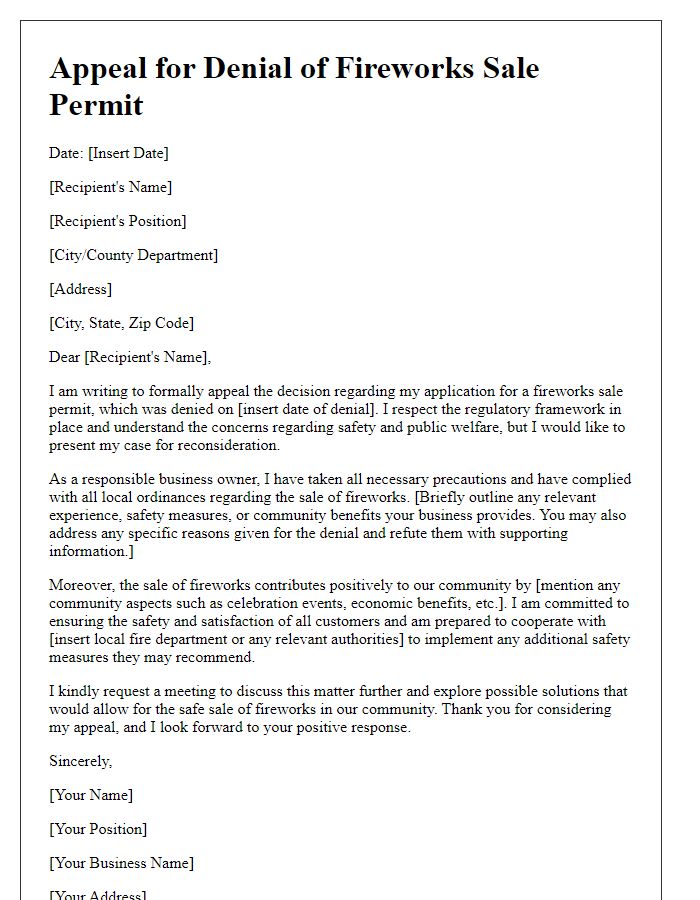
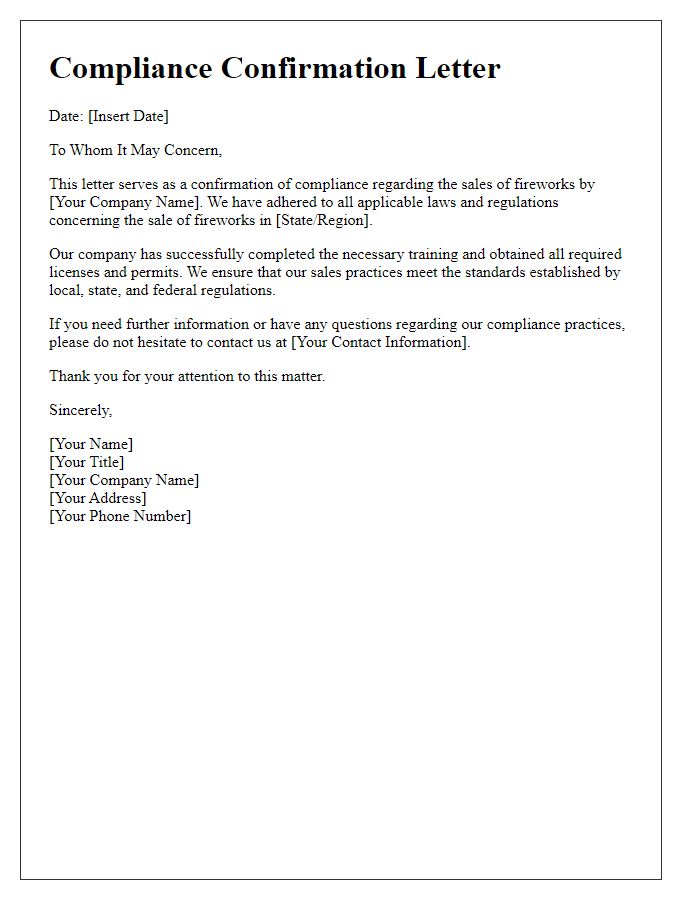
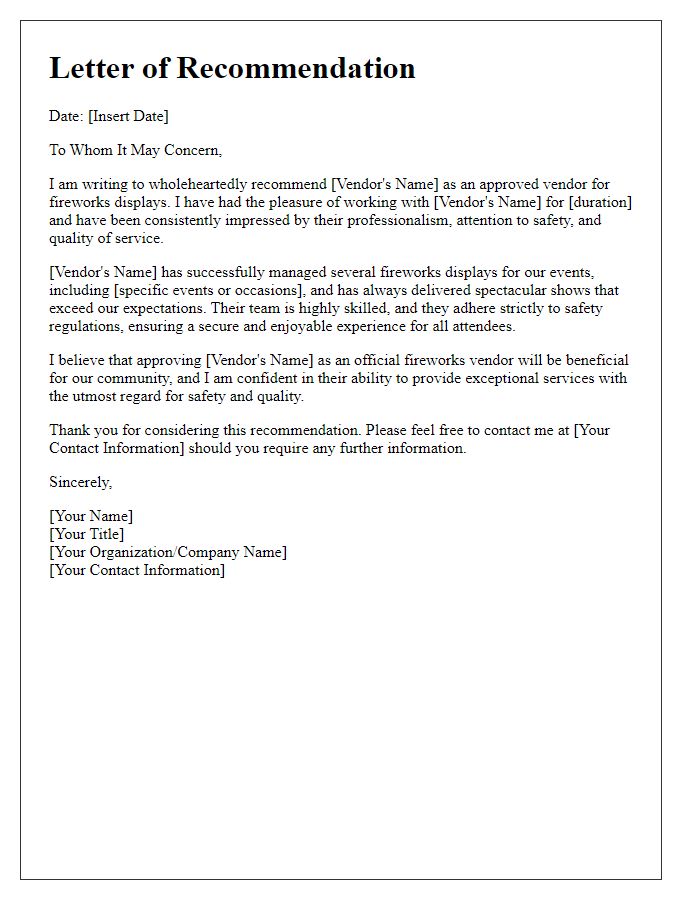
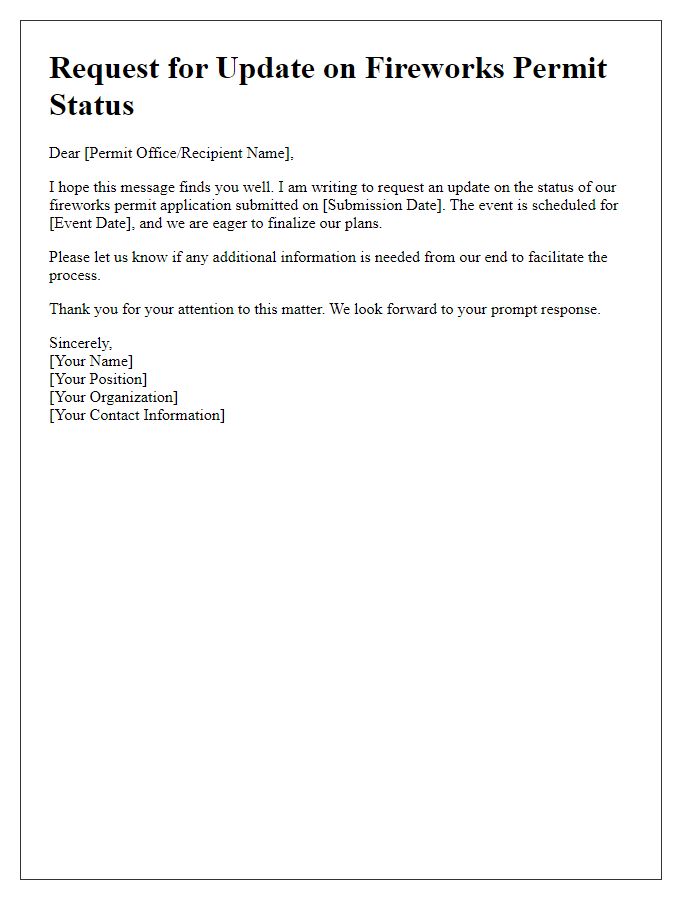
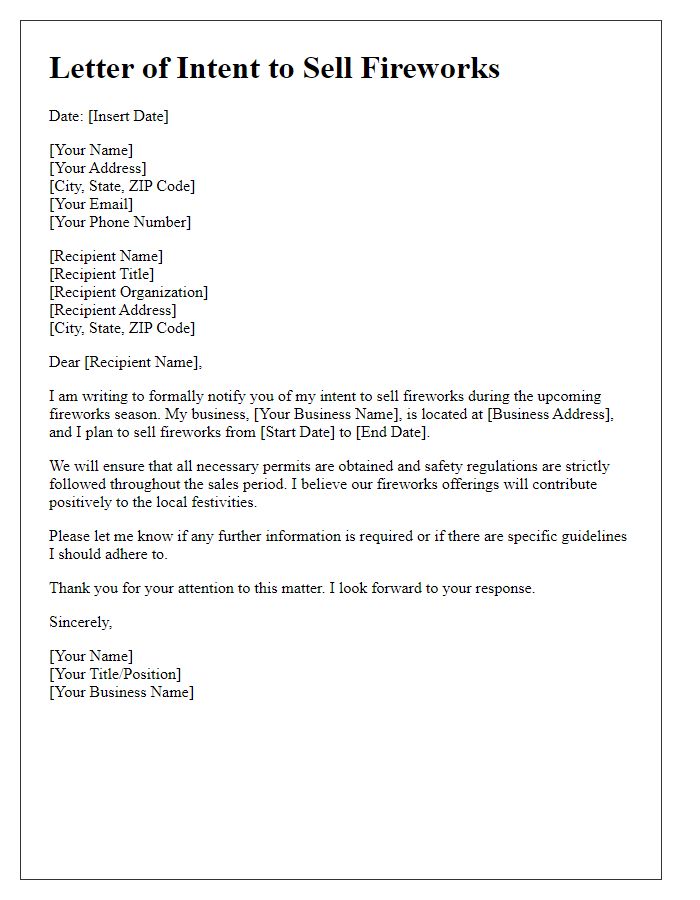
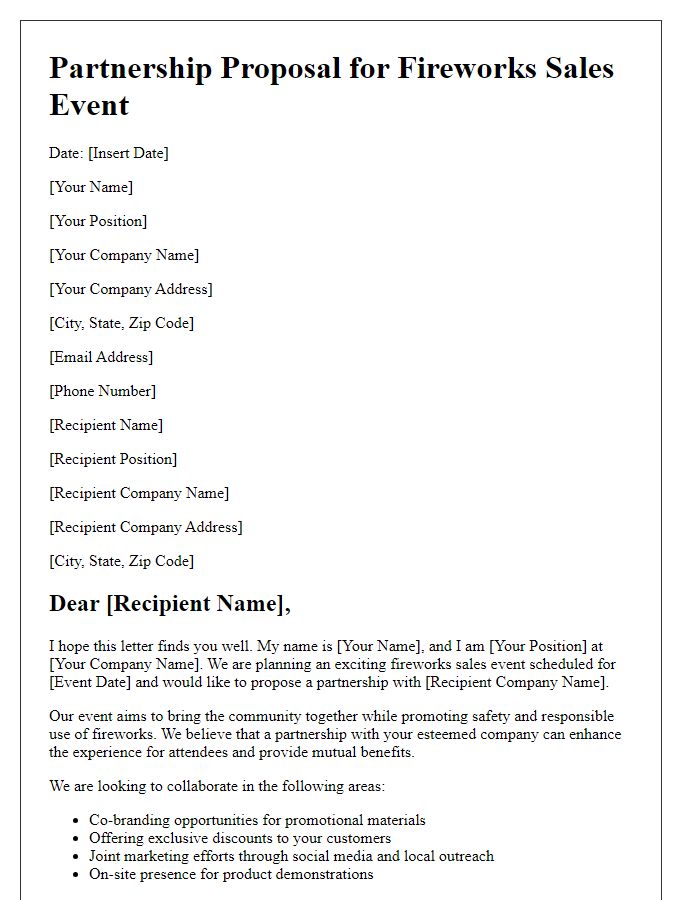


Comments